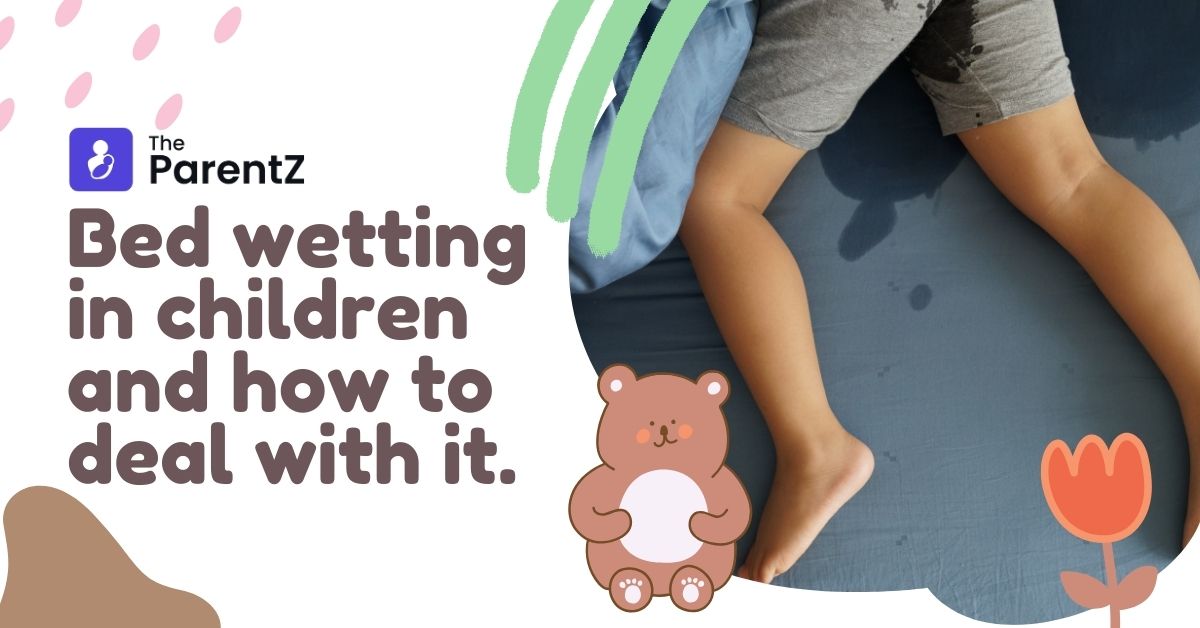It is a well known and very common fact that young children and babies aren’t able to control their bladder and often wet their bed. As children grow older, bladder control develops gradually and they are able to hold onto their pee. Bed wetting is considered a problem if it persists beyond the usual age of 7 years or develops after a child had previously regained the control of their bladder. Despite common perception, it is not a result of poor toilet training and laziness. Instead it may be a pointer to various underlying medical issues. It is important to address this problem, not just from a physical wellness standpoint but also because it has a huge impact on a child’s mental well being. Children suffering from this problem often develop feelings of shame and stigma. They may become withdrawn socially and limit their interactions with their peers.
What is bed wetting?
Bed wetting, put simply is not being able to control your pee. In medical terms, it is known as enuresis. In layman language, you may also call it involuntary urination.
When bladder control is absent and accidents occur only while sleeping, it is known as nocturnal enuresis. On the other hand, diurnal enuresis is the absence of control and presence of involuntary urination during the daytime.
Children develop bladder control around the age of 4-6 years. If bed wetting persists beyond 7 years of age and there are multiple episodes in a week, it poses a problem.
How common is bed wetting?
Occasional episodes of bed wetting may occur in children even after they gain bladder control. By 5 years of age, around 20% children will face the problem of bed wetting while 10% will still face it by the time they turn 7 years old. Though the common perception is that it is an issue of younger children, 1-2% teens may also face bedwetting as a problem. Statistics show that based on gender, bed wetting is more common in males when compared to females.
What causes bed wetting?
There are a multitude of underlying causes which may be responsible for bed wetting in a child. Some common causes include-
- A small bladder in the child.
- A lack of awareness of a full bladder.
- A problem with the nervous system which leads to an interruption of signals between the brain and bladder.
- Hormonal imbalance in children
- Development of diabetes in children
- Chronic constipation in children
- Worsening sleep apnea
- Urinary tract infection
- Abnormal anatomy of the urinary tract
What are the risk factors for bed wetting?
The above mentioned factors may lead to causation of bed wetting in children but besides these, there are a couple of other factors which increase the risk substantially. They make a child more susceptible to the development of bed wetting. These factors include but are not limited to:
- Genetics and a family history of similar issues in either one or both parents
- Sleep issues in a child
- An increased intake of caffeine especially in the evenings or night time
- Psychological problems such as extreme stress and anxiety
- Suffering from attention deficit hyperactivity disorder
When to consult a doctor?
Bed wetting usually resolves on its own with advancing age in children. Simple measures such as restriction of caffeine intake and resolution of stress and anxiety may also play a pivotal role. If despite such measures, there is no improvement it might be time to see a healthcare professional. Some indicators that professional help might be needed are:
- Child continues bed wetting after the age of 7 years
- There are multiple episodes of bed wetting in a single night
- There are multiple episodes of bed wetting through the week
- Child had previously gained bladder control but now has developed the problem of bed wetting
- Child complains of burning sensation or foul smelling discharge when urinating
- Child has long standing problem of constipation
- Child has suddenly increased thirst along with bed wetting
Controlling bed wetting without medicines
Bed wetting needs to be treated with behavioural techniques before medications are given. The following interventions may be used:
- Limiting intake of caffeine after noon.
- Limiting liquid intake before bedtime
- Going to the bathroom before going to sleep
- Setting a sensor alarm. It is an alarm which goes off when it detects wetness in the child’s underwear. It triggers the child to wake up and finish urinating in the bathroom.
- Bladder training. It is training the bladder to hold gradually increasing amounts of urine during the daytime. It improves bladder capacity.
Psychological impact of bed wetting
Bed wetting has a huge impact on the mental health of the child. It leads to development of feelings of shame and stigma while also hampering self esteem. The child may become introverted and limit their interaction with peers. It also leads to the child missing out on a number of social activities such as summer camps and social gatherings which include sleeping over for the night away from home.
Prognosis and outlook
Bed wetting is a very common and easily treatable condition. Behavioural therapy has shown great success in the treatment and it can also be supplemented by medications based on a doctor’s prescription. Treatment of underlying causes almost always leads to successful control of the condition.
It is important to keep in mind that it might be a stressful and sensitive issue and as such, the child will need support and understanding from the parents.






Be the first one to comment on this story.